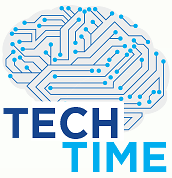Smartphone Apps May Help Reduce Depressive Symptoms
Abstract
Data on smartphone apps for patients with depressive symptoms suggest they may offer some usefulness, but the effects in patients with major depressive disorder are not known.

While there are more than 10,000 mental health–related smartphone apps available for immediate download, little is known about their effectiveness. What would you tell a patient who wanted to know if an app may be effective for his mood-related symptoms? A new meta-analysis of randomized, controlled trials of app interventions for depressive symptoms, published October 1 in the journal World Psychiatry, offers some guidance for psychiatrists. We were co-authors of that meta-analysis.
After conducting an exhaustive search, our team identified 18 randomized, controlled trials with outcomes data from 3,414 participants. The average effect size for reduction in depressive symptoms was 0.38, although in studies that featured an active control group, the effect size was reduced to 0.22. While this is a small effect size, it is statistically and clinically significant—it suggests that smartphone apps may offer tangible benefits to individuals with depression. However, with regard to major depressive disorder, there were only two randomized, controlled studies of app interventions, and the pooled effect size was lower, 0.09.
Apps that included in-app feedback (that is, provided feedback to users), cognitive-behavioral therapy (CBT) focus, and /or mindfulness focus were found to have significant effects on depression. Additionally, digital treatment programs delivered solely through smartphone apps were more effective than those that also relied upon external elements, such as computer programs and support.

The literature on smartphone apps for depression is expanding rapidly, and 14 of the 18 studies included in this meta-analysis were conducted in the last two years. As research on smartphones continues to grow, it will be increasingly important that psychiatrists stay up to date with the latest evidence about them.
In terms of advising patients about apps, there is no simple “one size fits all” answer—just as there is no one answer for all patients regarding exercise or medication. But having information about the effectiveness of specific apps can help with informed and shared decision making with patients. ■
“The Efficacy of Smartphone-Based Mental Health Interventions for Depressive Symptoms: A Meta-Analysis of Randomized Con-trolled Trials” is posted at http://onlinelibrary.wiley.com/doi/10.1002/wps.20472/full. Information about discussing smartphone apps with patients and an app evaluation model can be accessed here.



